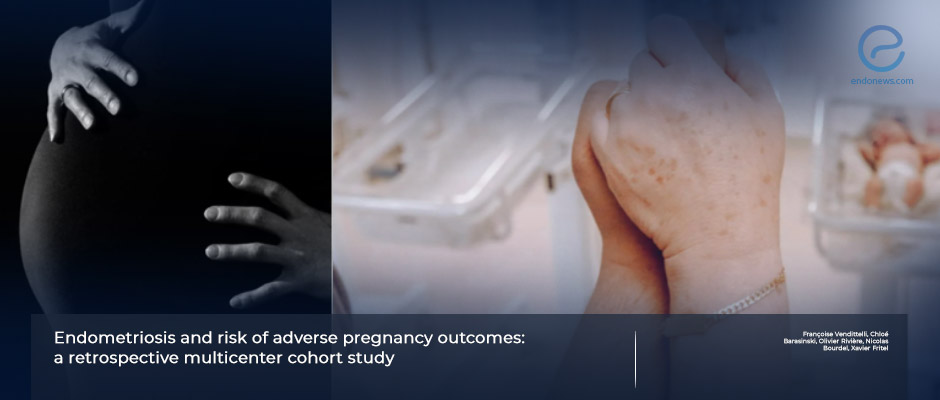Preterm Birth Risk Higher Among Women With Endo
Oct 3, 2024
The risk of having a premature baby and some pregnancy complications seems to be higher among women with endometriosis.
Key Points
Highlights:
- Women with endometriosis had a higher risk of giving birth before term and having pregnancy-associated complications.
- The use of assisted reproductive techniques does not seem to have an effect on the risk of premature birth and only seems to be associated with a higher risk of preeclampsia.
Importance:
- Treating endometriosis promptly, and of closely monitoring pregnant women with endometriosis are important for pregnancy ooutcomes.
What’s done here:
- This is a retrospective cohort study on 368,935 women who gave birth to 377,338 babies between 1999 and 2016.
- The aim of th study is to explore
- the possible link between endometriosis and premature birth;
- the association between endometriosis and pregnancy complications including preeclampsia, placenta previa, postpartum hemorrhage, stillbirth, and small-for-gestational-age infants, and
- the risk of these adverse pregnancy outcomes with and without assisted reproduction.
Key results:
- The prevalence of preterm births was higher among women with endometriosis compared to those without the disease.
- The adjusted risk ratios for some pregnancy complications were higher among women with endometriosis compared to those without.
- There were no statistically significant differences between assisted reproduction and risk of premature birth.
Lay Summary
Pregnant women with endometriosis have a higher risk of having a premature baby and other poor pregnancy outcomes compared to those without the disease, according to a new study published in the scientific journal Fertility and Sterility. This finding highlights the importance of promptly treating the disease and monitoring and counseling women with the disease during pregnancy.
The present study had 3 main objectives: to explore the possible link between endometriosis and premature birth; to explore the association between endometriosis and pregnancy complications including preeclampsia, placenta previa, postpartum hemorrhage, stillbirth, and small-for-gestational-age infants, and to assess the risk of these adverse pregnancy outcomes with and without assisted reproduction.
The team of researchers led by Dr. Xavier Fritel from INSERM, Université de Poitiers in Poitiers, France conducted a retrospective cohort study in 368,935 women who gave birth to 377,338 babies between 1999 and 2016 at 103 French maternity units. The primary outcome measure of the study was the rate of premature births, the secondary outcome measures were the rates of preeclampsia, placenta previa, postpartum hemorrhage, stillbirth, and small-for-gestational-age newborns.
Among women with endometriosis, 11.1% had births before 37 weeks, compared to 7.7% in those without the condition. For births before 33 weeks, the rates were 3.1% for women with endometriosis and 2.2% for those without. The adjusted relative risk of premature birth was higher in women with endometriosis for both timeframes. They also faced increased risks for complications like preeclampsia, placenta previa, postpartum hemorrhage, and having babies classified as small for gestational age. However, there were no significant differences in stillbirth rates or babies smaller than the 3rd percentile.
In cases of assisted reproduction, no significant differences in premature birth rates were found, but women who conceived this way did have a higher risk of placenta previa.
Research Source: https://pubmed.ncbi.nlm.nih.gov/39089610/
risk of preterm birth pregnancy complication assissted reproduction

